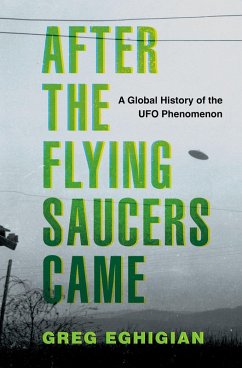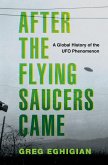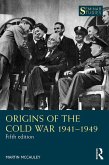Roswell, 1947. Washington, DC, 1952. Quarouble, 1954. New Hampshire, 1961. Pascagoula, 1973. Petrozavodsk, 1977. Copley Woods, 1983. Explore how sightings of UFOs and aliens seized the world's attention and discover what the fascination with flying saucers and extraterrestrial visitors says about our changing views on science, technology, and the paranormal. In the summer of 1947, a private pilot flying over the state of Washington saw what he described as several pie pan-shaped aircraft traveling in formation at remarkably high speed. Within days, journalists began referring to the objects as "flying saucers." Over the course of that summer, Americans reported seeing them in the skies overhead. News quickly spread, and within a few years, flying saucers were being spotted across the world. The question on everyone's mind was, what were they? Some new super weapon in the Cold War? Strange weather patterns? Optical illusions? Or perhaps it was all a case of mass hysteria? Some, however, concluded they could only be one thing: spacecrafts built and piloted by extraterrestrials. The age of the unidentified flying object, the UFO, had arrived. Greg Eghigian tells the story of the world's fascination with UFOs and the prospect that they were the work of visitors from outer space. While accounts of great wonders in the sky date back to antiquity, reports of UFOs took place against the unique backdrop of the Cold War and space age, giving rise to disputed government inquiries, breathtaking news stories, and single-minded sleuths.
After the Flying Saucers Came traces how a seemingly isolated incident sparked an international drama involving shady figures, questionable evidence, suspicions of conspiracy, hoaxes, new religions, scandals, unsettling alien encounters, debunkers, and celebrities. It examines how descriptions, theories, and debates about unidentified flying objects and alien abduction changed over time and how they appeared in the United States, Europe, Latin America, Asia, and Russia. And it explores the impact UFOs have had on our understanding of space, science, technology, and ourselves up through the present day. Replete with stories of the people who have made up the ufology community, the military and defense units that investigate them, the scientists and psychologists who have researched these unexplained encounters, and the many novels, movies, TV shows, and websites that have explored these phenomena,
After the Flying Saucers Came speaks to believers and skeptics alike.
Dieser Download kann aus rechtlichen Gründen nur mit Rechnungsadresse in A, B, BG, CY, CZ, D, DK, EW, E, FIN, F, GR, HR, H, IRL, I, LT, L, LR, M, NL, PL, P, R, S, SLO, SK ausgeliefert werden.









